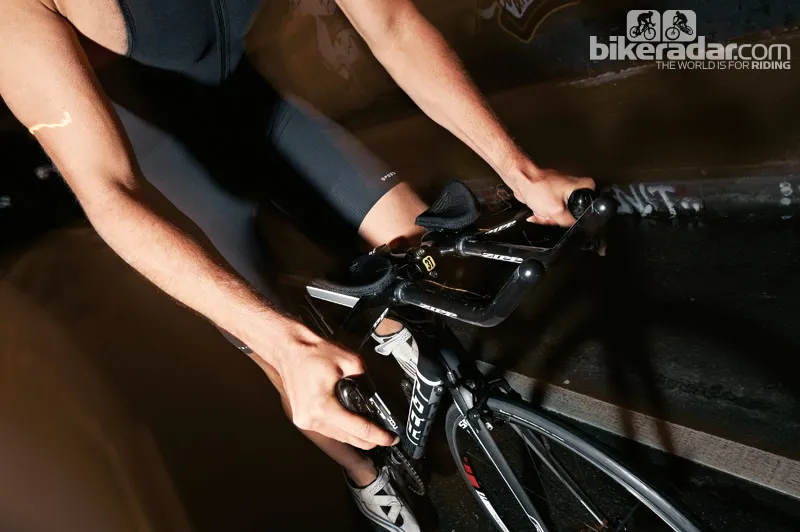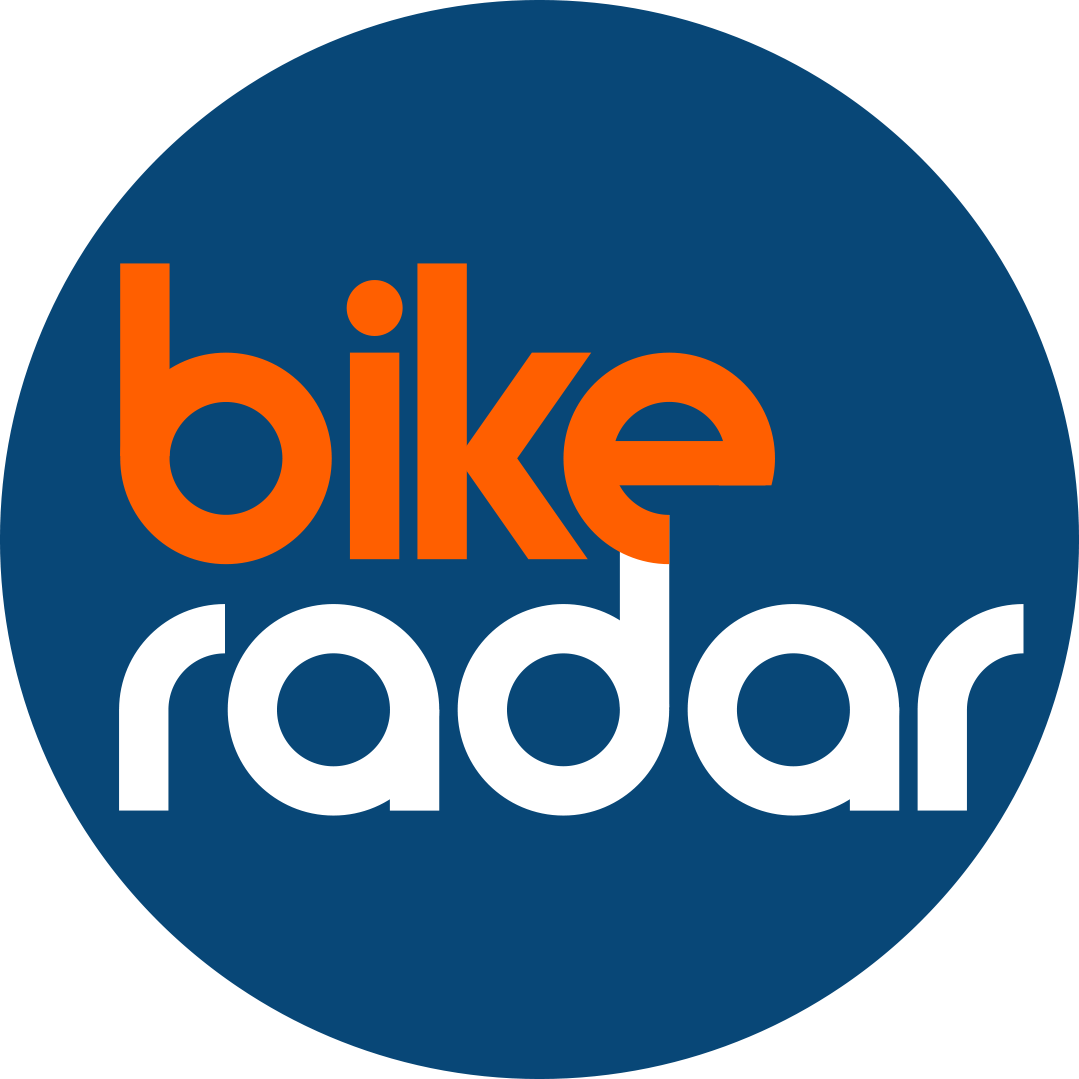Aero bars transform your barn door upright position into a slippery aero shape. But what features should you look for in the ideal set?
For long rides and races it’s imperative that your aero bars have good arm rest pads. Look for a set dense and wide enough that they don’t leave any area of the arm-cups exposed. Some can be removed for washing.
Then there are extension poles, which come in various shapes. The choice is down to comfort and position, and flatter isn’t always more aero. Alloy poles are cheaper, so you can try different shapes, but carbon is lighter.
In terms of weight, excessively heavy bars make life harder if you compete regularly on hilly courses. On the other hand, if you tend to ride flatter courses, aerodynamics and comfort should be your main concerns.
Your position directly impacts your aerodynamics and power, so your bars must be adjustable. This includes the height and width of the arm rests and the fore and aft position of the poles.
Here’s our pick of 2012’s best aero bars and clip-ons, broken down into integrated bars (where you get a handlebar plus attached extensions) and clip-ons (extensions that you add to your existing bar).
INTEGRATED AERO BARS
Zipp Vuka Alumina system
£189.97 (£59.99 base bar, £89.99 Clip, £39.99 extensions) / US$255 (US$80 base bar, US$120 Clip, US$55 extensions)

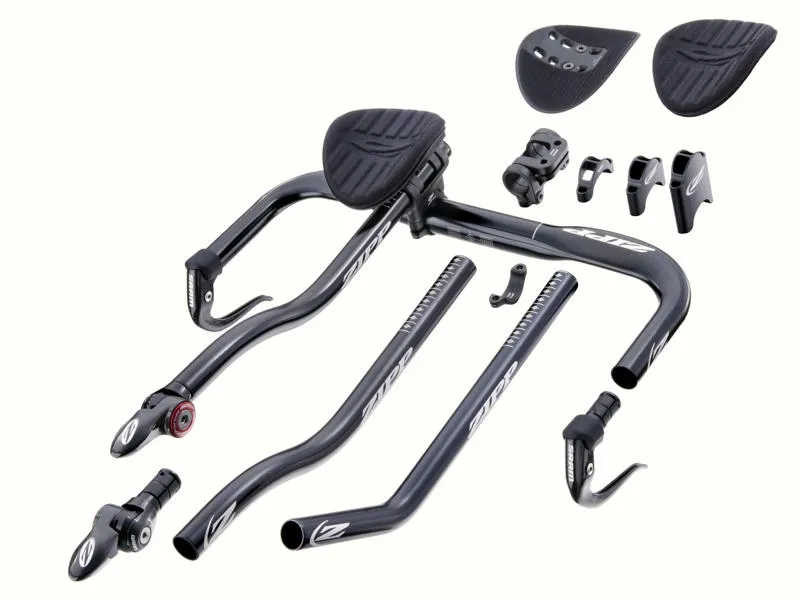


The Zipp Vuka Alumina aero bar system is great. It’s adjustable six ways to Sunday: length, relative width and angle of the extensions; width, height, fore/aft and angle of the pads; angle and – with the freedom to use any stem – height and fore/aft of the base bar.Click here to read our full review of the Zipp Vuka Alumina system.
Vision TriMax Carbon OS (bar plus R-Bend CSI clip-ons)
£509.90 (£279.95 base bar, £229.95 extensions) / US$589.98 (US$259.99 base bar, U$329.99)

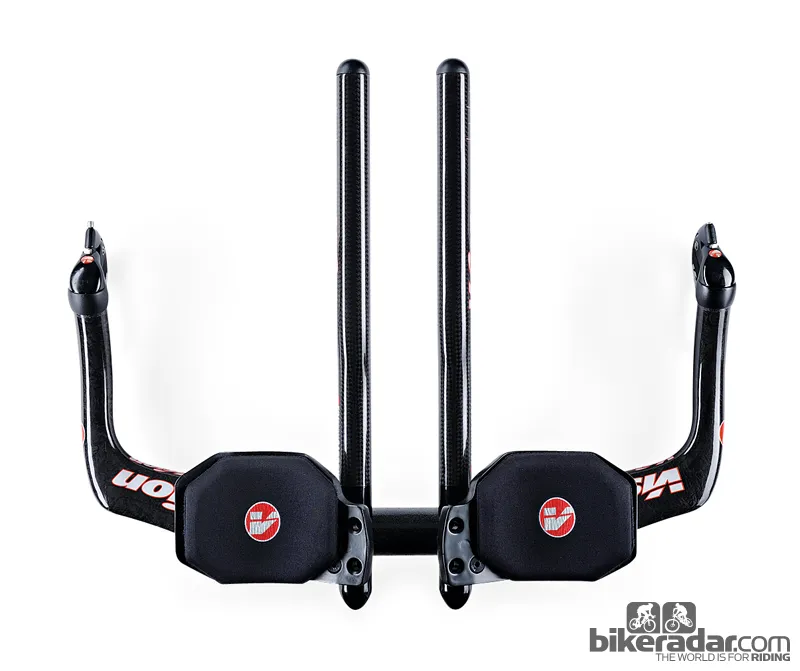


Vision are one of the biggest players in the aero bar market. The Trimax Carbon OS base bar fits 31.8mm stems and is compatible with clip-on extensions. It’s a flat, slightly forward swept wing with cow-horns for the brake levers that provide that little bit of extra confidence while cornering. There are several centimetres of width adjustment on the base bar, while the pads have three different settings. You won’t be able to get super narrow on them, however. The brake and gear cabling is all internal to reduce drag. Once fitted, the extensions were secure and we didn’t experience any slippage. Overall, the bars are very stiff and offer plenty of adjustment, plus they’re cheaper than the fully integrated bar.
From: Vision
USE R1 Aerobar
£800-£1,000 (TBC) / US$N/A

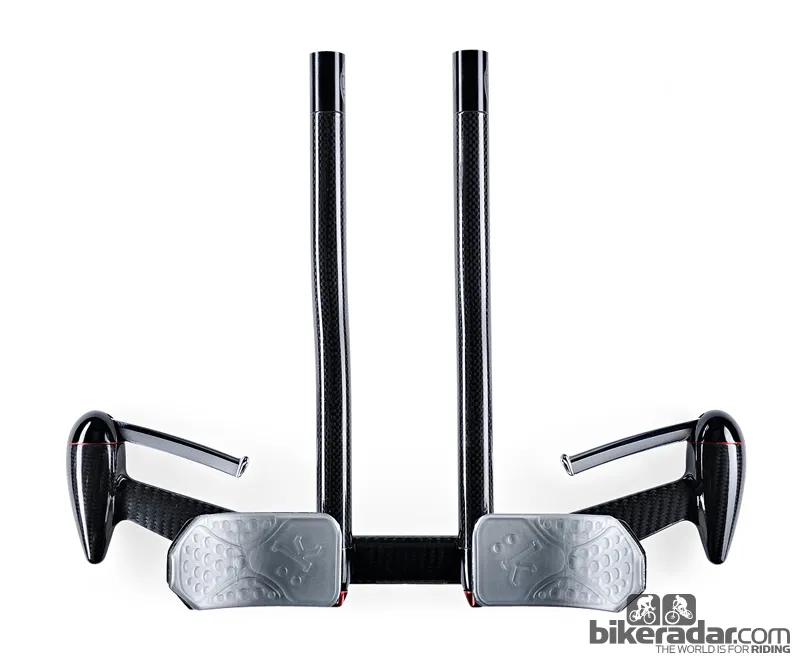


We tested a pre-production sample of USE’s R1 aero bar and were impressed – at 645g including base bar, extensions and brake levers it’s one of the lightest available. It performed well on the road and we were easily able to find a comfortable but fast position. The base bar looks slim but is very stiff, and the forward sweep of the pods offers a good cornering position. The elbow pads are comfortable and can be set at two different widths, and you also have two width options for the extensions. The in-line brakes take some getting used to, though.
The R1 includes a shim so will fit a standard stem and also some super bikes that have integrated bar setups. We had some issues with our sample that we’re assured will be fixed for the production bar, otherwise we’d have no hesitation in giving this full marks for performance.
From: USE
Vision TriMax Carbon SI R-Bend CSI
£649.95 / US$679.99

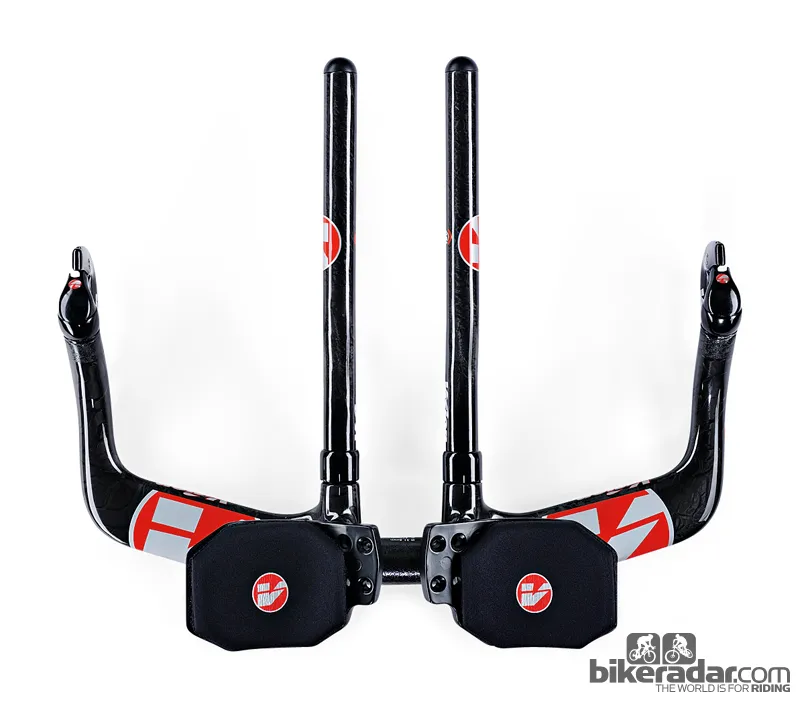


The fully integrated Vision TriMax Carbon Si R-Bend CSI aero bar is a slightly neater version of the base bar plus clip-ons reviewed above. It comes at a cost though: an extra £140 for a similar product that’s 25g heavier. The main aerodynamic advantage with these bars is less bulk around the base of the extensions, as they protrude directly from the base bar. That also means there’s no danger at all of the extensions slipping if you hit a hard bump. The extensions are fixed width, but with R-Bends you can swivel them in or out. The pads have Vision’s standard three-width adjustment – again, we’d like to be able to get them a little narrower – and we’ve found them very comfortable for long days in the saddle. Overall, it’s a very stiff bar and no surprise that it’s standard on many pro bikes.
From: Vision
3T Mistral
£259.99 / US$350

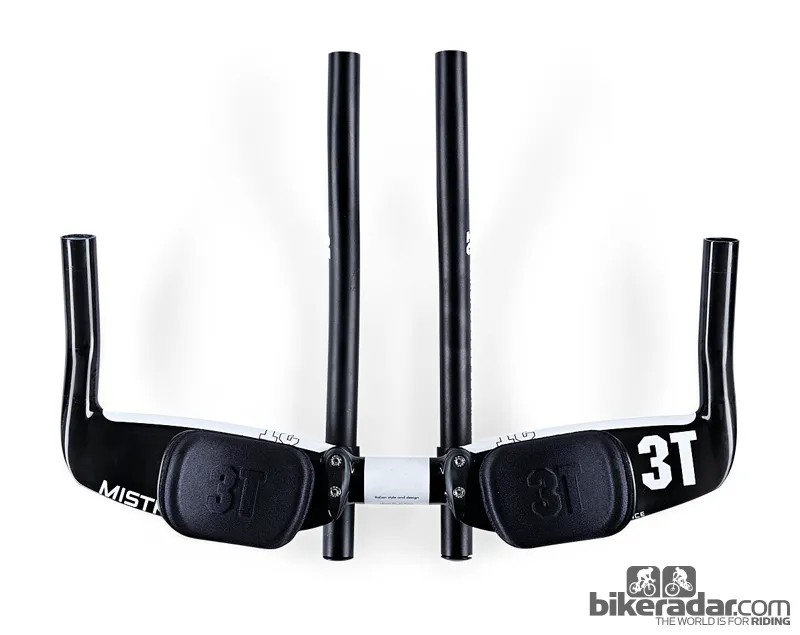


The 3T Mistral is an entry-level aerobar that’s got a lot going for it. It’s by far the cheapest integrated bar on test, and the low price doesn’t mean you pay a big weight penalty: the base bar plus extensions weighs 792g (for the record, add another 58g for 3T aero alloy brake levers). We liked the range of adjustability – the pads can go in 16 different positions on the base bar, although we’d like to see risers underneath them for better aerodynamics. We’d also prefer narrower options for the pad settings. The aluminium extensions are fitted underneath the base bar, and have rotational as well as fore-aft adjustment. They feel extremely solid while riding and the pads are comfortable. Cornering on the raised cow-horns is good too. Overall, we’re impressed by this well thought out entry-level bar.
From: 3T
CLIP-ON AERO BARS
USE Tula Boost
£75 (chassis), £75 (poles) / US$N/A

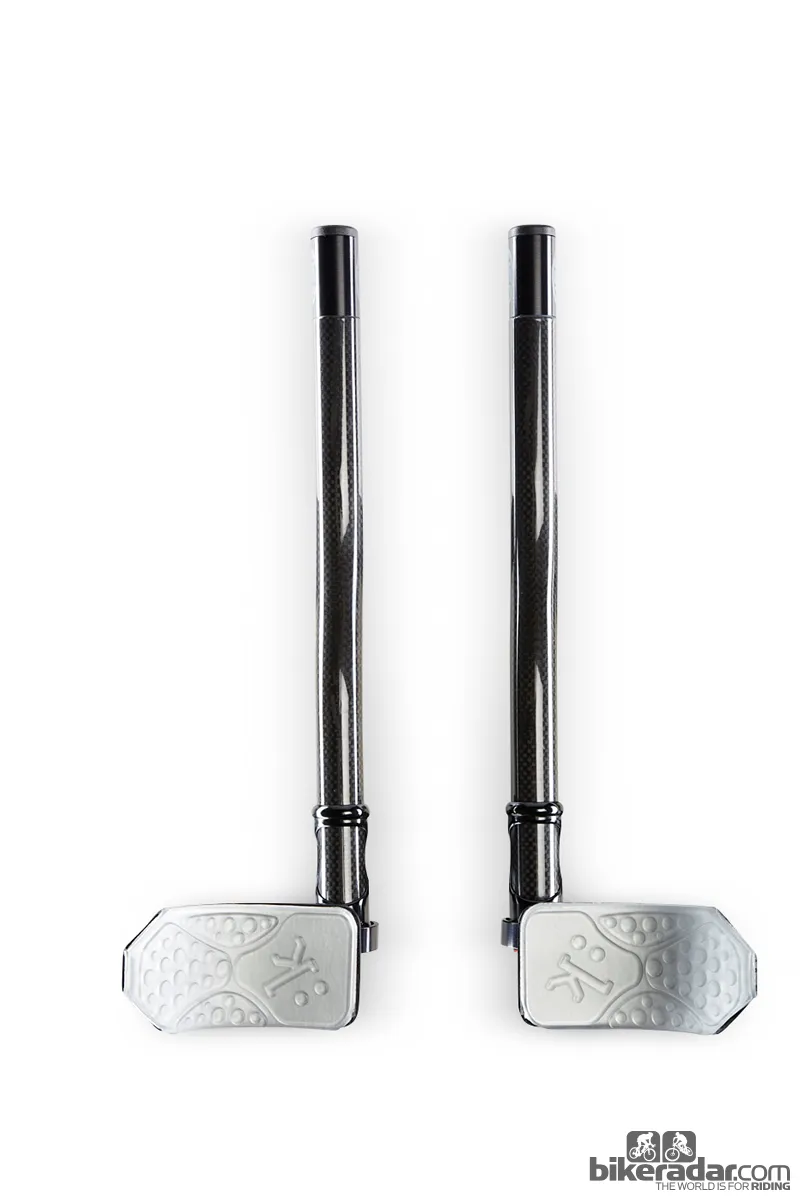


We had a bit of trouble trying to install these, but it was worth it. They brilliantly combined the attributes we were looking for, namely adjustability, aerodynamics, comfort and low weight. They have all the usual options such as variable arm rest positions and moveable extension poles. But they go further thanks to their unique ‘Rock n Roll’ clamp. This allows you to angle the arm rests in almost any direction you can imagine. At 310g it’s quite light, and if you’re willing to pay extra you can get a carbon chassis that shaves off another 90g. The gel pads on the arm rests are great too. They’re designed by the saddle-makers Fizik and while they’re thin, they soak up every bump in the road. If you don’t mind fiddling with Allen keys, these bars are brilliant.
From: USE
Zipp VukaClip
£125 (chassis), £109.99 (extension poles) / US$175

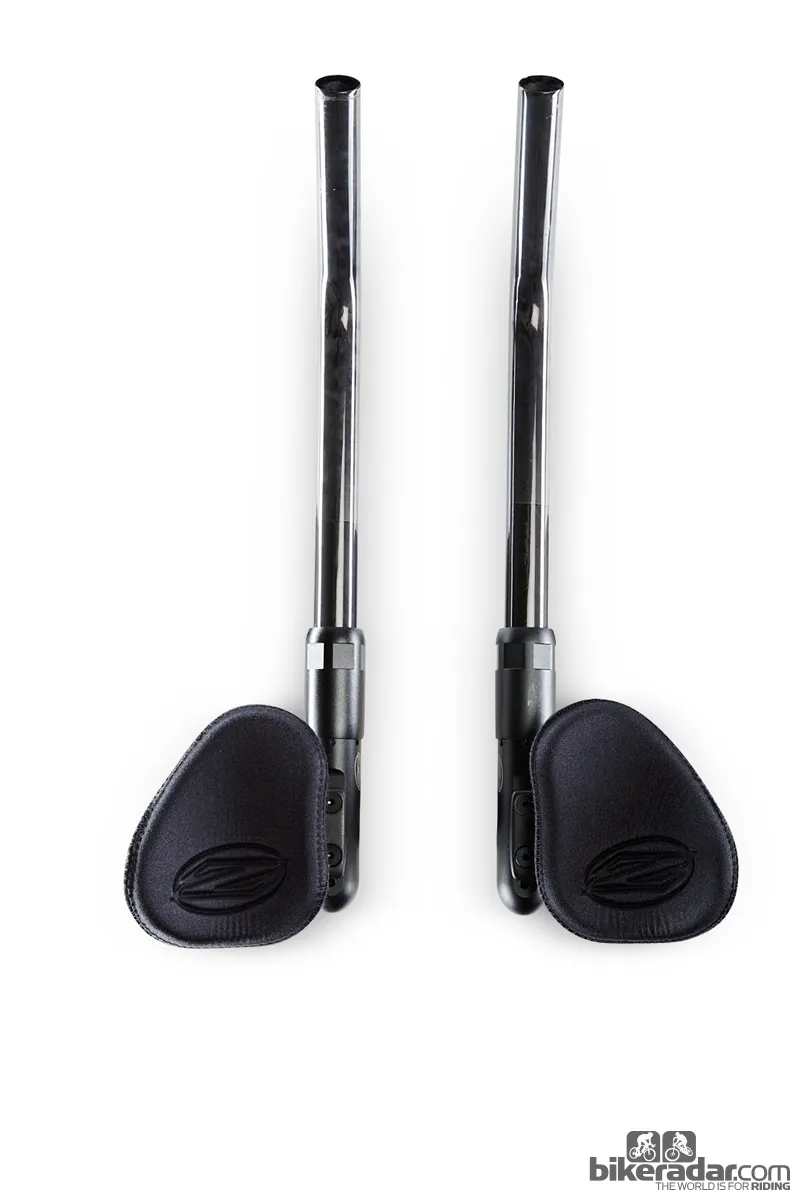


These aren’t the lightest or cheapest aero bars, but they’re certainly one of the fastest. The VukaClips were designed for aerodynamics and adjustability, and every aspect of them is clutter-free and practical. The carbon bar extensions connect to the bases with a simple twist lock system, which allows you to make fast adjustments without tools, and also means there aren’t lots of bolts to mess up the airflow. The aluminium clip-on bases are designed to protect against sweat corrosion and come with risers so you can raise the comfortable armpads. They also have three width positions and can be moved backwards and forwards, which in addition to the bar extensions makes it easy to find the fastest position. They look and feel great and while their weight may put you off, the clever design and build quality will make up for it.
From: Zipp
Profile T3
£99.99 / US$129.99

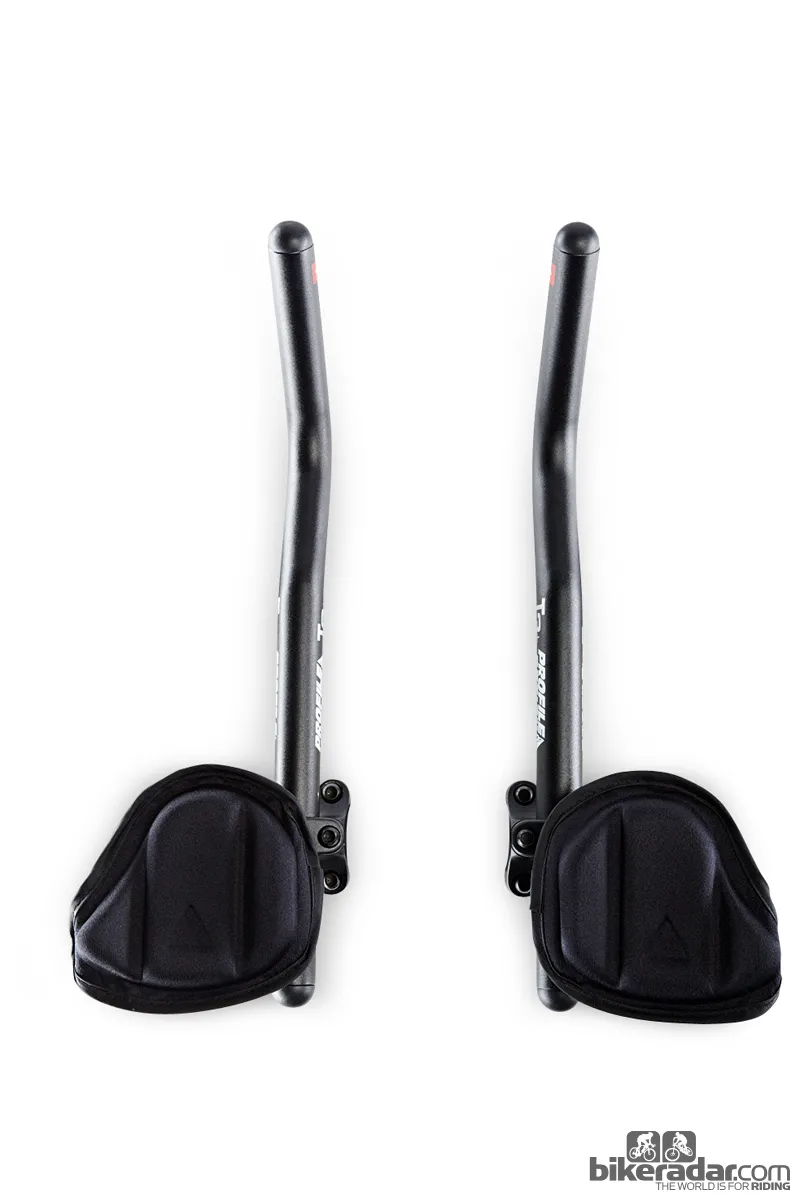


These may look a bit old-school, but in terms of price, practicality and comfort they’re hard to beat. They can be adjusted in every direction you can imagine, thanks to a series of bolts, clamps and holes that are all easy to access. You can shift the arm rests forwards, backwards, side to side and even angle them inwards.
The foam arm pads are soft and fasten to the base plates with Velcro straps. They are simple to remove and washable, while allowing you easy access to the Allen key bolts underneath. The alloy extensions can be moved and rotated too. While they’re very adjustable, the numerous clamps, straps and metal pieces don’t make them very sleek and sexy. Apart from that they’re perfect for long-distance triathlons, when you’re looking for all-day comfort in an aerodynamic position.
From: Profile
This article is based on reviews originally published in Triathlon Plus magazine, available on Zinio.
